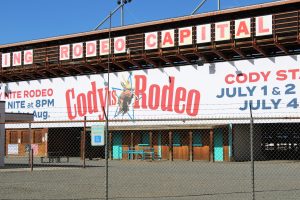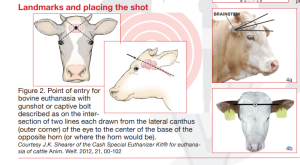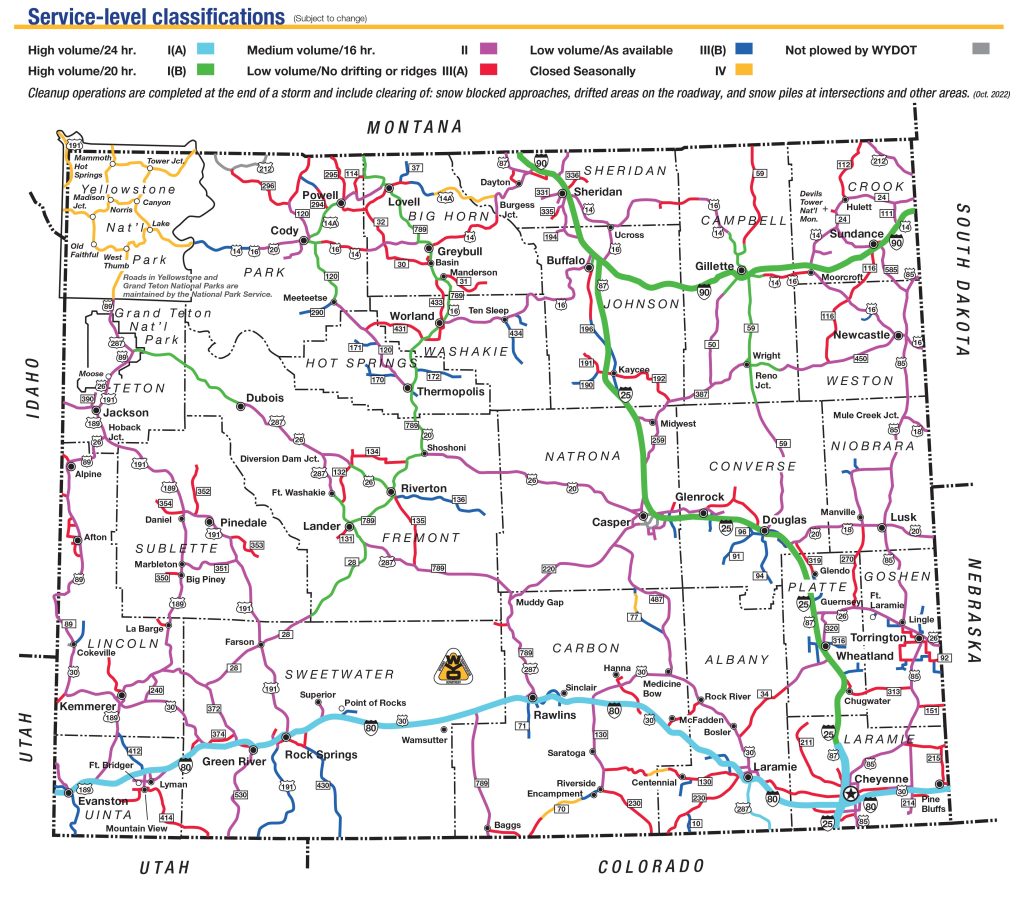Cody Nite Rodeo Bull Shot Multiple Times within City Limits
Written by Caleb Nelson on November 1, 2022
A Cody Police Department report, made available through a public records request, indicates that on June 25th, 2022, a man named Wyatt Lehman, once described by the Cody Enterprise as a “longtime Cody Nite Rodeo stock worker,” shot a bull used for bucking stock multiple times on the Cody Stampede Rodeo grounds.
The animal was shot between three to six times (accounts differ) in the parking lot back in June, but the police investigation didn’t take place until September 14th, 2022, when Trevor Williams went to the Cody Law Enforcement Center (CLEC) to speak with an officer about “an issue out at the Cody Stampede Rodeo Grounds.”
“Gaylon told me, initially, that they were calling – they were joking around about Wyatt being ‘six-shot Wyatt’ because he couldn’t get the bull killed with one shot,” Williams says.
The narrative of the police report explains that an officer followed up with Gaylon Georges and Wyatt Lehman per Williams’ statement, but the police report does not explain who these individuals are, nor does it explain their connection to the bull shooting.
“Jacob was there during the tail end of it, and they were getting ready to haul the bull off to the landfill, but he said they were having to wait for the bull to die on the trailer ‘cause it still hadn’t even died yet – six shots hadn’t killed it,” Williams says.
The officer’s line of questioning does not address the huge gap in time between the event and the investigation. Williams was told that Lehman shot the bull “six times and then people who were around watched the bull suffer for a time, before it finally died,” the report states. Williams told police he did not personally witness the events, so he was “allowed to leave.”
The investigating officer writes, “On the same date at approximately 1645 hours, I called and spoke with Georges about the above listed events. In speaking with Georges, he explained that the bull had been injured to the point of needing to be put down.”
According to the police report, “Georges, said LEHMAN [sic], had shot the bull three (3) times and it was done as humane [sic] as possible.” Williams had been told the bull had been shot six times. Georges says Lehman shot the bull three times.
When questioning Lehman, the officer never confirms how many times the animal had been shot. Similarly, Lehman was never asked if he had the appropriate training for large animal euthanasia. The officer does not ask if a veterinarian diagnosed the injury or if a veterinarian had been requested that day. If the officer did ask these questions, they were not included in the police report.
Even if the bull needed to be put down, is this the PRCA standard for rodeo animal welfare?
The PRCA declined to make public comment except to say, “the PRCA requires a veterinarian to be on-site during all PRCA rodeo performances and all decisions about the best care of any injured animal is [sic] made by the veterinarian. Our sanctioned rodeos have a 99.9% safety percentage for animal exposures nationwide annually.”
Williams explains that he was “hesitating” to say anything about the incident because he had only heard it from one person and thought the story might have been embellished. Next, Williams says he heard the same story from several other people “later on” toward the end of the summer.
Williams decided to go to the police to make a statement because it wasn’t “sitting right” with him. Williams based his statement to Cody PD on what he had been told from both Gaylon Georges and others, which is what prompted the police investigation in September.
Yellowstone Equine Hospital has worked with the Cody Nite Rodeo in the past. When asked about best practices for large animal euthanasia, they did not comment other than to say they adhere to current AVMA euthanasia guidelines.
The American Veterinary Medical Association (AVMA) has an extensive and detailed list of standards for the humane euthanasia of large animals to be performed by veterinarians.
The “AVMA Guidelines for the Euthanasia of Animals” recognizes and accepts three primary methods of euthanasia for cattle:
■ Intravenous (IV)
■ Gunshot
■ Penetrating captive bolt (PCB)
There are other euthanasia considerations recommended by the AVMA, including animal welfare, restraint, practicality, skill, cost, aesthetics, diagnostics, carcass disposal, etc.
Regarding “Gunshot” as a method of euthanasia to be performed by a veterinarian, the AVMA writes, “When properly executed, gunshot induces instantaneous unconsciousness and death, is inexpensive and does not require close contact with the animal. It should be emphasized that this method should only be attempted by individuals trained in the use of firearms.”
Further, when using a handgun, the firearm “should be held within one-to-two feet of the intended target and the bullet should be directed perpendicular to the front of the skull to minimize the likelihood of ricochet,” the AVMA writes.
In cattle, the point of entry for the projectile should be at the intersection of two imaginary lines, each drawn from the outside corner of the eye to the base of the opposite horn as shown in Figure 2 in Landmarks and Placing the Shot.
According to Iowa State University’s College of Veterinary Medicine, gunshot is a practical method of euthanasia, however, the procedure “requires the selection of an appropriate firearm and bullet with sufficient velocity, energy and size to pass through the skull (enter the brain), and cause massive brain destruction. A .22 caliber long rifle solid point bullet fired from either a pistol or rifle is sufficient for young animals. Hollow or soft point .22 caliber bullets increase brain tissue destruction, but may not penetrate the skull in adult animals and are therefore, not recommended. Euthanasia of bulls and some adult cows, horses, or cervids (elk) by gunshot requires larger caliber firearms, because of thickness of the skull.”
The PD report does not specify what type or caliber of firearm was used to shoot the rodeo bull.
The AVMA has clear guidelines for euthanasia when it needs to be performed by someone other than a veterinarian, “if euthanasia is to be provided by the owner, employees of the facility or a non-veterinarian third party, the expectation is that those individuals should have annual training and certification on how to recognize animals in need of euthanasia, proper euthanasia technique, how to properly confirm death, safe use of the methods of euthanizing to be employed, as well as how to maintain the equipment after and between uses. Some documented record of this training should be kept in the facilities training records or herd health plan,” AVMA writes.
It’s not clear from the PD report if Lehman had the documentation mentioned in the AVMA guidelines. It’s also not clear if police contacted the longtime stock contractor for the Cody Nite Rodeo, Mo Betta Rodeo Company, about the incident.
Lehman was issued a warning after being told it was against “Cody City Ordinance to shoot a firearm within the confines of the City of Cody,” the report explains.
According to the report, Lehman says he didn’t know the rodeo grounds were within city limits and “if he knew it was against the law, he would not have done it.” Of course, this only addresses the legality of discharging a firearm within city limits and does not explain why the animal had to be shot more than once. Cody PD declined to make a public comment on the report.



